Jerrod Carmichael’s riveting defense of ‘therapy comedy’
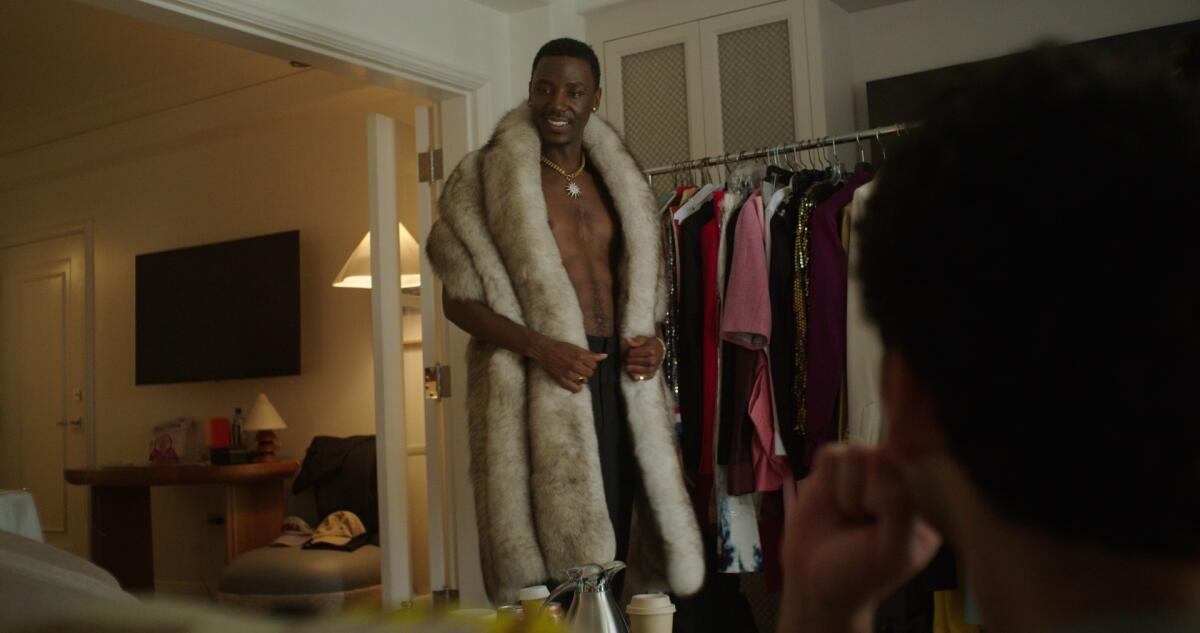
Welcome to Screen Gab, the newsletter for everyone still working through what they think (or are supposed to think) about an unorthodox new reality show.
As editor Matt Brennan writes in this week’s Catch Up, “Jerrod Carmichael Reality Show” contains fewer revelations about the “Rothaniel” comedian than about his creative process — and if you watch it for the former you’re bound to be disappointed.
Also in Screen Gab no. 132, Marcus Scribner joins us to say goodbye to Andre Johnson Jr. as his 10 years on “black-ish” and “grown-ish” come to a close, plus streaming recommendations for your weekend.
You are reading Screen Gab newsletter
Sign up to get recommendations for the TV shows and streaming movies you can’t miss, plus exclusive interviews with the talent behind your favorite titles, in your inbox every Friday
You may occasionally receive promotional content from the Los Angeles Times.
ICYMI
Must-read stories you might have missed
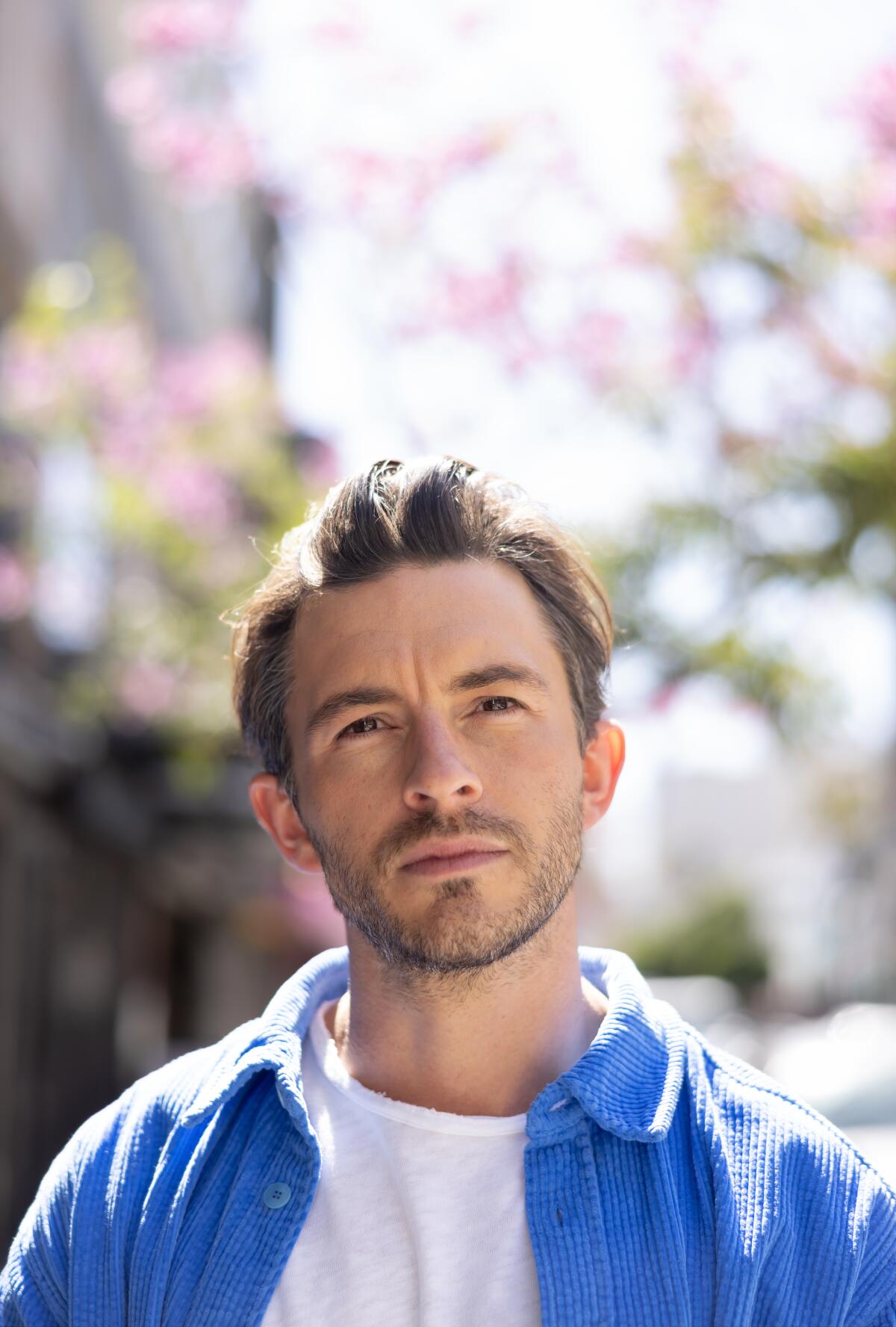
Jonathan Bailey doesn’t like to bare it all. But vulnerability fueled his best performance yet: After swaggering turns in “Crashing,” “Cock” and “Bridgerton,” the actor delivers a career-best performance in “Fellow Travelers” by tapping a new wellspring: soft power.
At KTLA, Sam Rubin was a local morning news pioneer who covered Hollywood with zeal: Rubin helped pioneer early-morning TV broadcasts at Channel 5, and his coverage of Hollywood tended to be largely positive.
After 10 years on ‘The Tonight Show,’ Jimmy Fallon remains a departure from his predecessors: “The Tonight Show” is a storied institution that’s been on air nearly seven decades. Now, it’s celebrating 10 years with Jimmy Fallon, a tenure that’s been a departure from previous hosts.
Nicola Coughlan moves out of the shadows and into the spotlight on ‘Bridgerton’: This season of “Bridgerton” sees Nicola Coughlan’s Penelope Featherington move to the center of the story, which the actor says is reflective of her own life and career.
Turn on
Recommendations from the film and TV experts at The Times
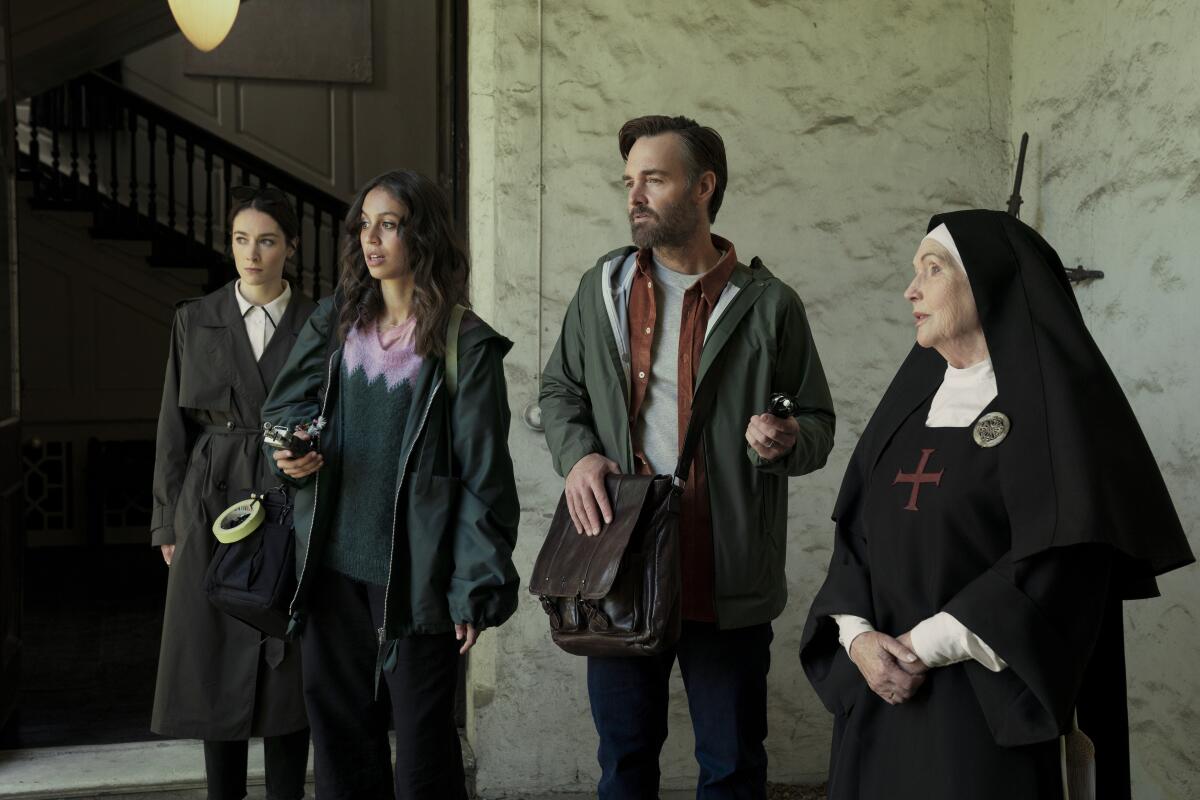
“Bodkin” (Netflix)
A bodkin is best known, from Shakespeare, as the dagger with which one might make one’s quietus. But here it’s the significantly sinister name of the Irish village to which bumbling American podcaster Gilbert (Will Forte) has come on the cold trail of a 25-year-old mystery: the disappearance of three people on the Irish Night of the Dead. Attached to him are a reluctant, even contemptuous Dove (Siobhán Cullen), a legitimate investigative reporter whose editor has hustled her out of the U.K. after the death of a whistleblowing source; and eager, somewhat abused assistant Emmy (Robyn Cara). As one would expect from a seven-episode series, emerging facts will widen the scope and rearrange the matter of the case, and as one would expect from a small town (dark) comedy, our heroes are regarded variously as a curiosity and an irritant — to the eccentric villagers and to one another. Nearly everyone’s got at least one secret — even to themselves — and things get wild, and emotionally moving, as the show goes on. —Robert Lloyd
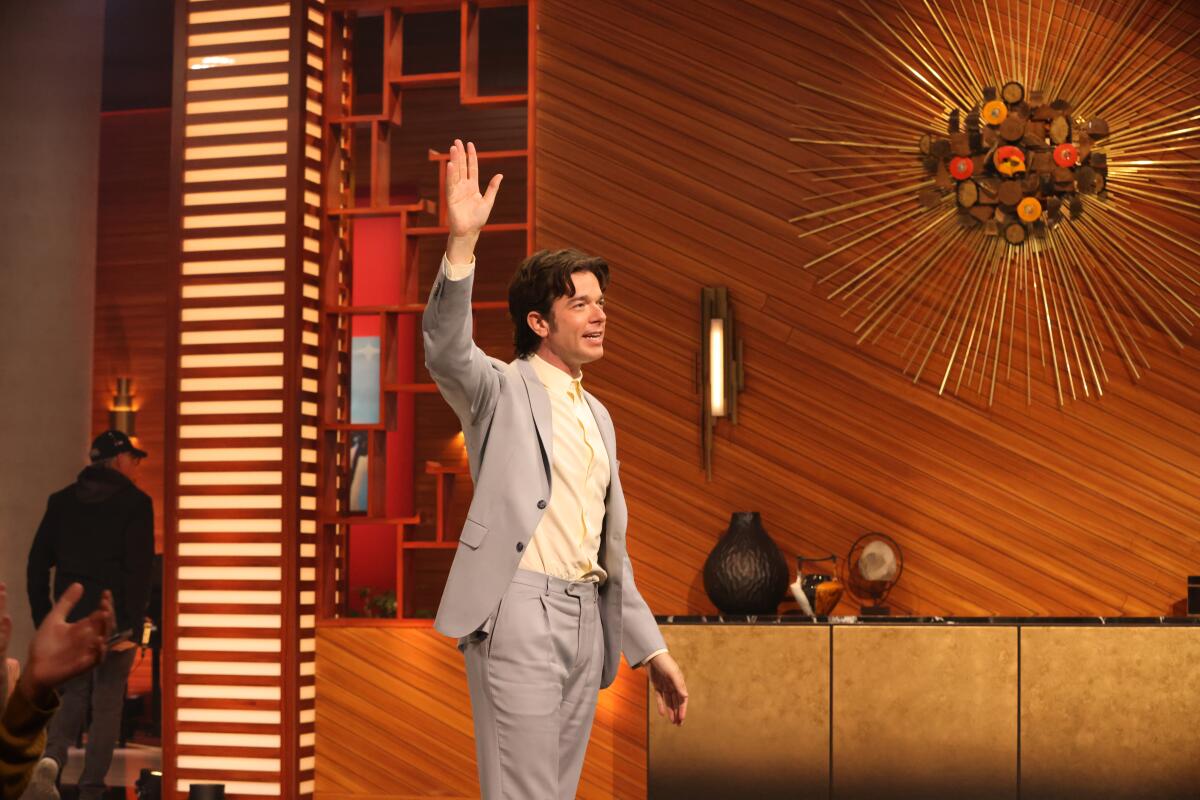
“John Mulaney Presents: Everybody’s in L.A.” (Netflix)
Although he made clear his hosting stint was strictly a limited run, John Mulaney proved he could be the next big thing in late night with “Everybody’s in L.A.” Featuring interviews with his comedian pals and local experts on L.A.-centric topics like coyotes and palm trees, Mulaney crafted a bizarre and often chaotic show that feels straight out of the ‘70s. The hybrid late-night/sketch comedy show, produced in conjunction with the Netflix Is a Joke comedy festival, assembled a motley crew of A-listers, academic celebrities and up-and-coming comedians for its six episodes to prompt delightfully strange encounters — like when David Letterman cozied up with comic Luenell under a blanket, proceeding to make seismology star Lucy Jones blush. It’s an acquired taste, but those familiar with Mulaney’s style will appreciate its zaniness. Richard Kind also lends his familiar banter as the show’s announcer, and he and Mulaney maintain consistent bits throughout the episodes, like asking live callers what kind of car they drive or getting snacks from a food delivery robot during the show. The host’s monologues, with biting one-liners about his new city, are also quintessential Mulaney: strong rhythm, witty criticism and a dash of eccentricity. — Kaitlyn Huamani
READ MORE: John Mulaney’s ‘Everybody’s in L.A.’: A guide to the hyperlocal references
Catch up
Everything you need to know about the film or TV series everyone’s talking about
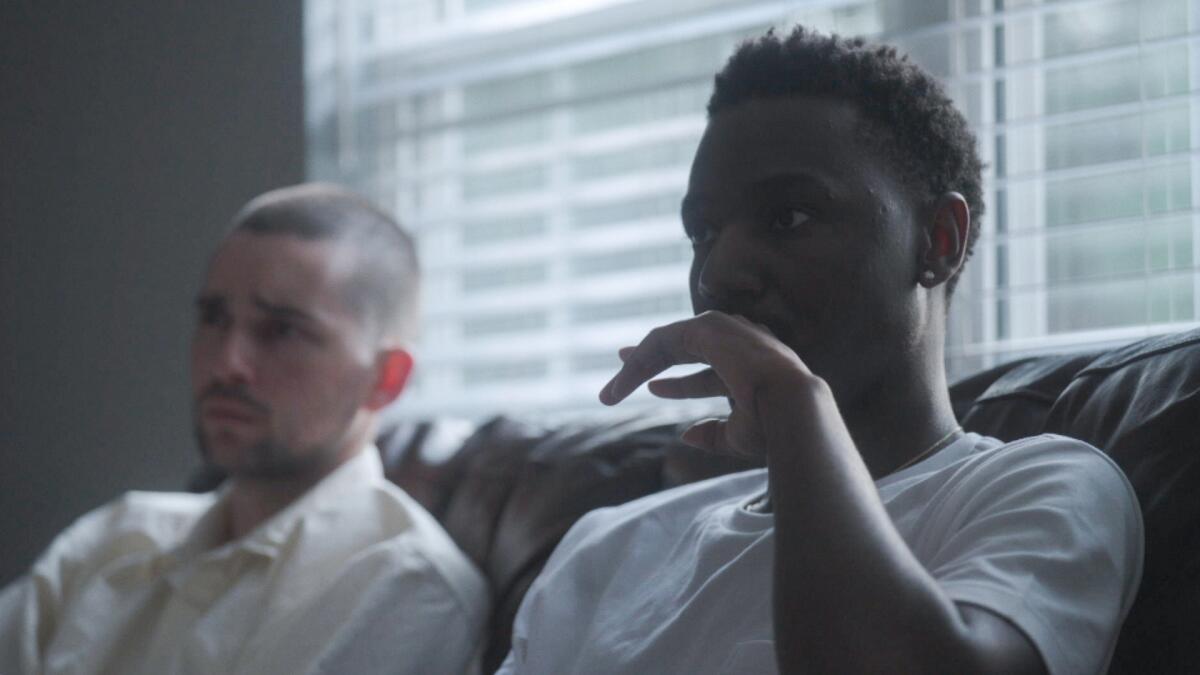
Those searching “Jerrod Carmichael Reality Show” for insights into the inner life of its star would do well to look elsewhere: The Max docuseries, which concludes Friday, is proof that “unscripted” TV can be its least “authentic,” and that verisimilitude doesn’t necessarily equal candor. By Carmichael’s own admission, after all, “performance protects” — and the series, whether in its controversial depiction of his sex life or its uncomfortable scenes of family strife, ultimately holds any meaningful revelations about its subject at arm’s length.
Instead, “Jerrod Carmichael Reality Show” emerges as a riveting document of the comedian’s creative process, transforming the real (his relationships) into reality (his docuseries) and thence into art (his act). Having already opened a vein in his Emmy-winning special, “Rothaniel,” Carmichael now presents a four-hour making-of featurette: Match-cutting on-camera exchanges with his boyfriend, his closest friends and his parents to biographical snippets in his stage shows, we see what he exaggerates, what he downplays, what he makes up whole cloth. At a moment when “true stories” are outpaced only by “intellectual property” in the Hollywood imaginary, and celebrities are regularly expected, Method-style, to explain how their work dovetails with their personal lives, Carmichael’s most vulnerable decision in the series is to display how the sausage is made — and, by extension, to defend against criticism of what friend and fellow stand-up Jamar Neighbors calls “therapy comedy.”
After the hand-wringing over the truth content in Hasan Minhaj’s act, or the search for the “real” Martha of “Baby Reindeer,” or indeed the social media firestorm sparked by seemingly every personal essay published in the Cut, “Jerrod Carmichael Reality Show” is a useful reminder, as an “anonymous” friend remarks in the first episode, that “this is not a neutral eye,” whether the camera’s, Carmichael’s, yours or mine. Nor is the memoir form, on screen or on the page, simply a transcription of one’s experiences and emotions. If you’ve ever felt your mind drift as a friend or family member droned through a “hilarious” or “dramatic” tale, you know firsthand that first-person storytelling is still a craft, and if nothing else “Jerrod Carmichael Reality Show” wears its mechanics like a second skin.
Whether you believe Carmichael’s claim that he needs the camera to tell the truth — or that he can elicit productive responses from those unused to its presence — there is no doubt that the series, like “Rothaniel,” is the result of careful, even ruthless, construction. Indeed, “Jerrod Carmichael Reality Show’s” most electric exchange, at the tail end of the comedian’s confrontational road trip with his father, says less about Carmichael the son than Carmichael the performer, as his father accuses him of staging a setup. “I knew this was coming,” he says, in a pained whisper to rival “The Jinx” that’s neither therapy nor comedy, but still unforgettable television. “I knew it. I knew it, I knew it, I knew it.” —Matt Brennan
Guest spot
A weekly chat with actors, writers, directors and more about what they’re working on — and what they’re watching
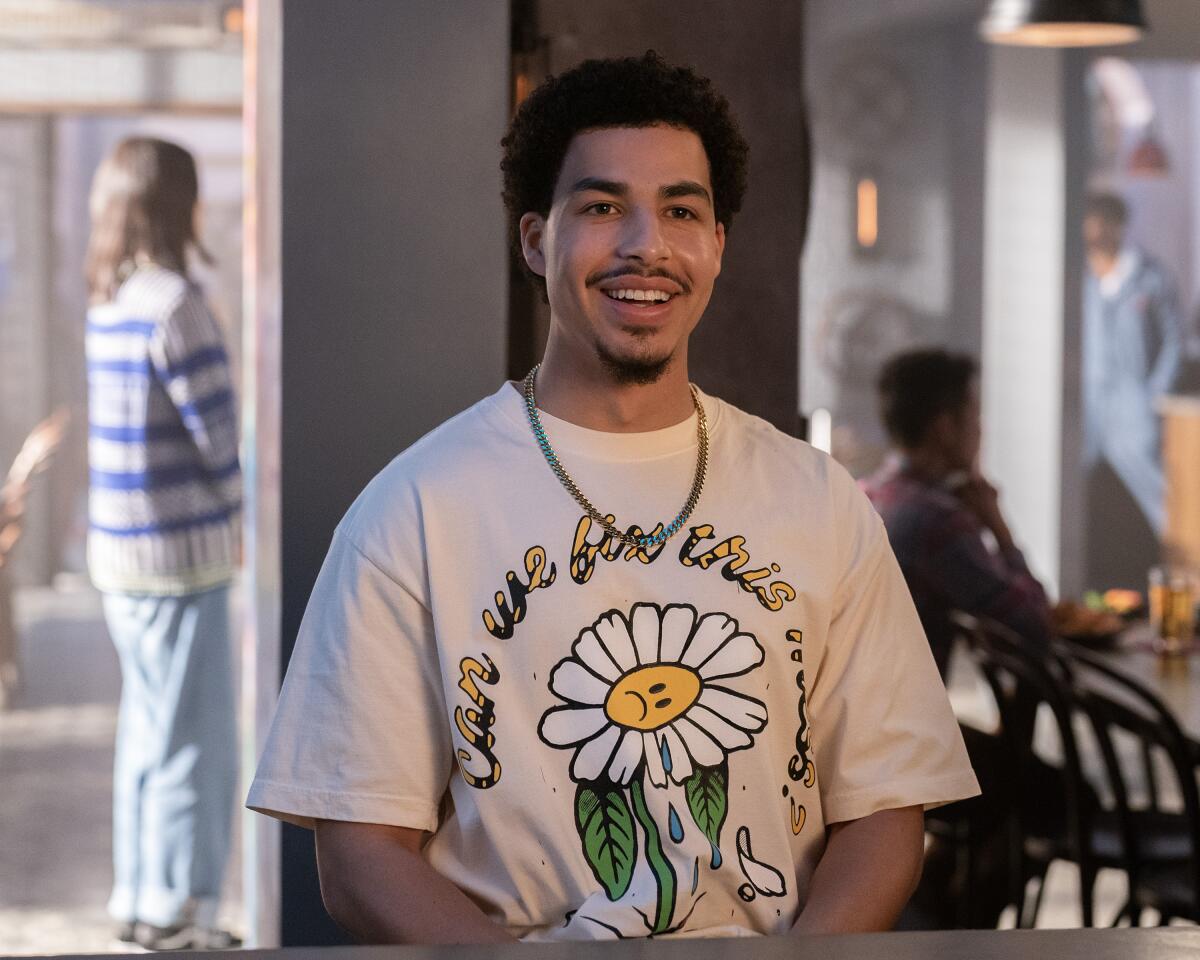
After a decade playing the nerdy, optimistic, occasionally harebrained Andre Johnson Jr. — better known as Junior — Marcus Scribner is ready to graduate into whatever’s next. Actor and character, who were just 14 when “black-ish” premiered on ABC in 2014, have since stepped into bigger shoes as the center of campus spinoff “grown-ish” (Freeform), launched in 2018 with Yara Shahidi’s Zoey. Before the series concludes its sixth and final season Wednesday, Scribner stopped by Screen Gab to discuss growing up alongside his character, how “Challengers” ignited his affinity for techno and more. —Matt Brennan
What have you watched recently that you are recommending to everyone you know?
I couldn’t shut up about “The Holdovers” [Peacock] last year. I don’t know why, I just think I went in with low expectations and not expecting to connect with the stories and characters and I really did. I didn’t want their story to end right there. This year I’m loving “Challengers.” The performances were insane, and the soundtrack was phenomenal. I’m not much of a techno guy but now I am. As for shows, I’m loving “The Other Two” [Max]. I cannot shut up about it and I feel like it went under the radar a bit.
What’s your go-to “comfort watch,” the film or TV show you return to again and again?
“Blades of Glory” [Paramount+] and “Zoolander” [Paramount+] were go-tos for a really long time and I feel like that still persists. A recent one for me is “The Batman” [Max, Tubi] with Robert Pattinson. It’s definitely one of my new favorite movies.
Between “black-ish” and “grown-ish,” you’ve now played Junior for 10 very formative years. What do you think has changed most about you in that time? What do you think has changed most about him?
I feel like in a very weird way we’ve grown together. I brought a lot of things about myself to the character of Junior and it’s been interesting to see us evolve as people in such different ways. One thing that I feel like has been a through line is our optimism, and I hope that always prevails. Junior started out as this super nerdy kid who wasn’t sure of himself and was picked on by the people around him for being the way he was, then grew into a confident young man who knew what he wanted and was and wouldn’t let anyone take that from him. The main thing that prevailed was his optimism and I admire that.
When “black-ish” ended, we asked the cast to share their favorite episodes. What’s your favorite episode of “grown-ish” and why?
I love our finale episode. I think it’s a banger and I hope everyone who watches agrees. I feel like we give the characters a decisive end that feels real while also celebrating the years we’ve been with them.
The complete guide to home viewing
Get Screen Gab for everything about the TV shows and streaming movies everyone’s talking about.
You may occasionally receive promotional content from the Los Angeles Times.






